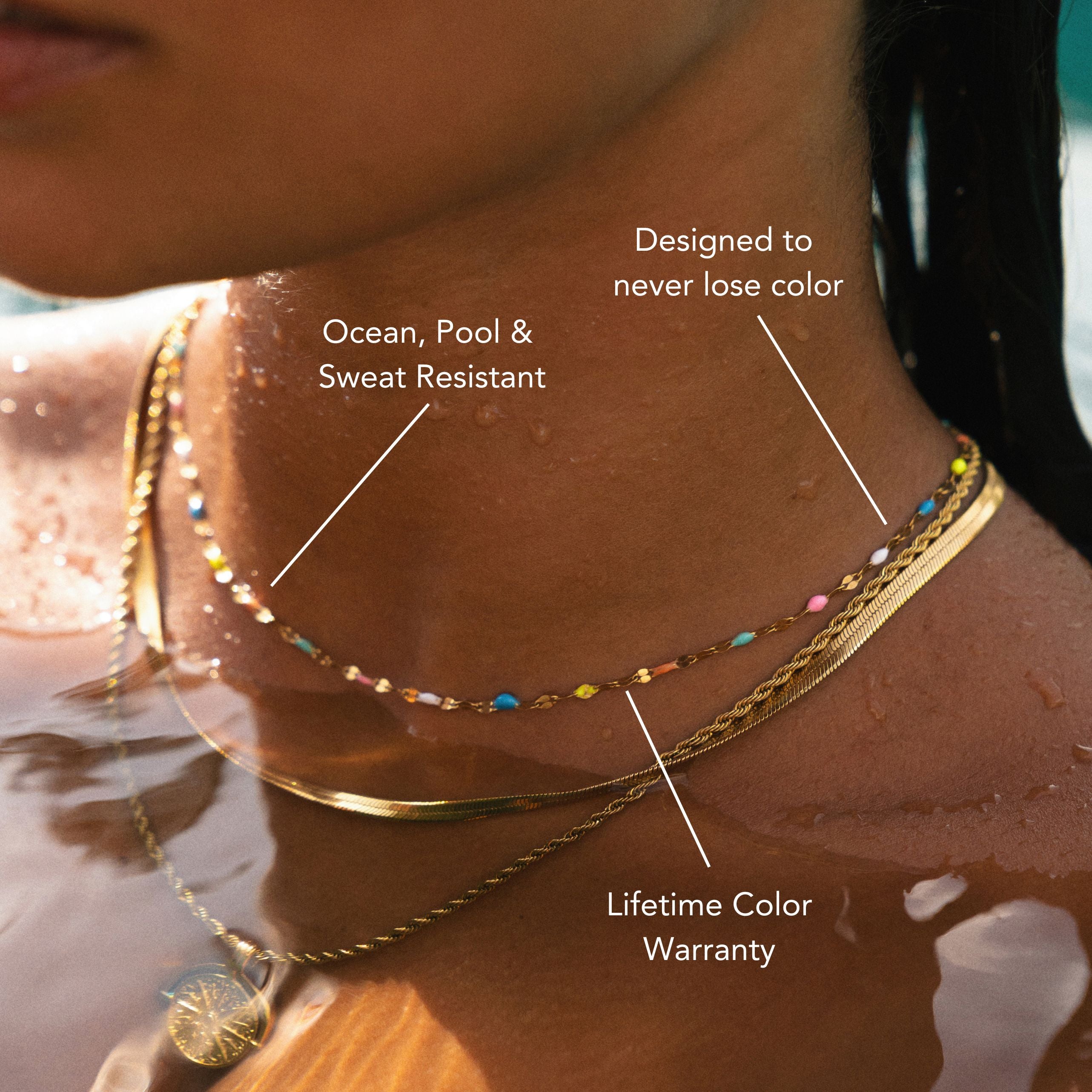
Can You Wear Jewelry in an MRI? What You Should Know
Can you wear jewelry in an MRI? The short answer is no. You must remove all jewelry before your MRI to ensure both safety and accurate imaging. Metal objects can interfere with the scan, distorting images and posing risks due to the machine’s strong magnetic field. This includes rings, body piercings, and even metallic clothing. However, non-metal alternatives like silicone or plastic jewelry can be worn safely if needed. If you're looking for safe, consider exploring our hypoallergenic jewelry collection. Always consult your MRI technician for guidance on what’s safe to wear to minimize interference and ensure a smooth scanning process.
Understanding MRI Technology
MRI, or magnetic resonance imaging, is a powerful diagnostic tool that utilizes strong magnetic fields and radio waves to generate detailed images of the body's internal structures.
Understanding MRI basics is vital for anyone undergoing this procedure. During the imaging process, the machine creates a magnetic field that aligns hydrogen atoms in your body. When radio waves are applied, these atoms emit signals, which are then captured to form images.
Various imaging techniques, such as T1-weighted and T2-weighted scans, provide different views of tissue types, helping radiologists diagnose conditions accurately.
It's important to follow pre-scan instructions and discuss any concerns, ensuring the best possible results and a safe imaging experience tailored to your needs.
Effects of Metal on MRIs
When undergoing an MRI, it's important to understand how metal can affect the imaging process. Metal objects can cause MRI interference, leading to distorted images or even rendering them unusable. This interference occurs because the strong magnetic fields can attract ferromagnetic materials, posing safety risks.
Additionally, metal implants, such as pacemakers or surgical hardware, may affect the procedure and require special attention. Always inform your healthcare provider of any metal in your body before the scan.
To guarantee metal safety, it's best to remove all jewelry and accessories. By being proactive about metal presence, you can help guarantee accurate imaging and a safe MRI experience.
Types of Jewelry to Avoid
To guarantee safety and ideal imaging during an MRI, it's crucial to avoid wearing specific types of jewelry.
First, refrain from wearing gold rings, as they contain metal that can interfere with the magnetic field, potentially causing artifacts in the images.
Additionally, body piercings, including earrings, nose rings, and lip studs, should also be removed prior to the procedure. These items may not only disrupt the MRI's magnetic field but can also pose a risk of injury if they become dislodged during the scan.
Always consult with your MRI technician about any jewelry concerns before your appointment to guarantee a smooth and safe imaging experience.
Safe Jewelry Options
When preparing for an MRI, it's essential to choose jewelry that won't interfere with the scan.
Non-metal options, such as silicone or plastic, are safe alternatives.
If you prefer metal, make sure it's non-magnetic and consider temporarily removing all jewelry to avoid any issues.
Non-Metal Jewelry Choices
Opting for non-metal jewelry can be a practical choice for those needing an MRI.
When selecting jewelry materials, consider non-metal options such as silicone, plastic, wood, or glass. These materials don't contain ferromagnetic properties, making them safe during the MRI procedure.
Silicone rings and bracelets are popular for their flexibility and durability. Plastic earrings and necklaces can also provide stylish alternatives without the risks associated with metal.
Wood and glass pieces offer unique aesthetics while ensuring safety. Always check that the entire piece is non-metal, as some designs may include metal components.
Magnetic vs. Non-Magnetic Metals
While many people enjoy wearing jewelry, it's crucial to understand the differences between magnetic and non-magnetic metals, especially if you're preparing for an MRI.
Metals are classified based on their magnetic properties: ferromagnetic metals, like iron and nickel, can be attracted by magnets, posing risks during an MRI.
Non-magnetic metals, such as titanium, platinum, and certain types of stainless steel, are generally safe to wear. These metals won't interfere with the MRI machine or cause discomfort.
When selecting jewelry, you should prioritize non-magnetic options to guarantee a safe MRI experience. Always verify the metal classification of your jewelry to avoid complications and guarantee accurate imaging results during your procedure.
Temporary Removal Recommendations
Before your MRI, it's essential to temporarily remove any jewelry that may pose a risk.
Focus on quick removal techniques for items like earrings, necklaces, bracelets, and rings. Consider using temporary jewelry options, such as plastic or fabric pieces, which are safe to wear during the procedure.
If you're unsure about specific items, consult your MRI technician for guidance. They can provide insight into which materials are acceptable.
Always make certain your skin is clean and dry to facilitate easy removal.
Remember, even small items like hairpins can interfere with the MRI, so it's best to err on the side of caution.
Proper preparation will help guarantee a smooth and safe MRI experience.
Preparing for Your MRI
Before your MRI, it's essential to understand the concerns regarding metal objects.
Confirm to follow the dress code guidelines provided by the facility, as certain clothing and accessories can interfere with the imaging process.
Removing any metal items will help guarantee a safe and effective MRI experience.
Metal Objects Concerns
As you prepare for your MRI, it's important to understand the concerns related to metal objects.
MRI machines generate strong magnetic fields, which can pose significant MRI risks if metal is present. Items like jewelry, watches, and hairpins can interfere with the imaging process and may even become projectiles due to the magnet's force.
To maintain metal safety, remove all metal objects before your scan. Inform your healthcare provider about any implants, such as pacemakers or joint replacements, as they may affect your eligibility for the MRI.
Always prioritize clear communication about any metal-related concerns to avoid complications during your procedure. Following these guidelines helps create a safe environment and guarantees accurate imaging results.
Dress Code Guidelines
To guarantee a smooth MRI experience, it's crucial to follow specific dress code guidelines.
First, remove all metal objects, including jewelry, hairpins, and clothing with metal fasteners. These items can interfere with the MRI's magnetic field, potentially leading to inaccurate results.
MRI attire recommendations suggest wearing loose-fitting, comfortable clothing made from non-metallic materials. Opt for cotton or synthetic fabrics that don't contain any metallic threads. Avoid clothing with zippers, buttons, or embellishments that might contain metal.
If possible, wear the hospital-provided gown, as it meets dress code essentials for the procedure.
Always consult with your healthcare provider for any specific attire instructions tailored to your individual needs or any specialized MRI procedures.
Alternatives to Traditional Jewelry
While traditional jewelry often poses risks during MRI scans, alternative options can provide both style and safety.
Consider using jewelry substitutes made from non-metallic materials. Silicone and polymer-based items are popular alternatives, offering flexibility and comfort without the risk of interference with MRI machines.
Additionally, opt for fabric or leather accessories, which can be both fashionable and MRI-safe. If you prefer a more elegant look, explore resin or acrylic pieces that mimic the appearance of traditional metals without their magnetic properties.
When choosing your jewelry, always prioritize alternative materials that won't react during the scan. This approach guarantees you can maintain your personal style while safeguarding your health during medical imaging procedures.
Expert Recommendations and Tips
When preparing for an MRI, it's important to follow expert recommendations to guarantee a smooth experience.
First, remove all jewelry, including earrings, necklaces, and bracelets, as they can interfere with the imaging process.
Follow any specific instructions your healthcare provider gives you regarding clothing; you may need to wear a hospital gown.
It's also wise to inform the MRI technician about any implants, piercings, or tattoos that might contain metal.
For your safety, avoid wearing clothing with metallic fibers or embellishments.
Finally, if you have concerns about anxiety during the procedure, consult your doctor for expert advice on relaxation techniques.
Following these safety precautions guarantees that your MRI is effective and safe.
Frequently Asked Questions
Can I Wear My Piercings During an MRI Scan?
You shouldn't wear piercings during an MRI scan, especially if they contain metal. Certain piercing materials can interfere with the imaging, and if you have metal allergies, it's best to remove them beforehand.
What Happens if I Forget to Remove My Jewelry?
If you forget to remove your jewelry before an MRI, it may interfere with the scan, potentially causing distorted images. Always follow MRI guidelines to guarantee accurate results and avoid unnecessary complications during the procedure.
Are There Any Health Risks From Wearing Jewelry in an MRI?
Wearing jewelry during an MRI can pose health risks due to MRI safety concerns. Metallic materials, like steel or gold, may cause artifacts or interfere with imaging, potentially leading to inaccurate results or complications. Always consult beforehand.
Can I Wear Hair Accessories in the MRI Machine?
You shouldn't wear hair clips containing magnetic materials in the MRI machine. These accessories can interfere with the imaging process and pose safety risks, so it's best to remove them before your scan.
Will My MRI Results Be Affected by My Jewelry?
Yes, your MRI results can be affected by jewelry materials, potentially causing MRI artifacts. Metallic components may distort images, leading to inaccurate diagnoses. It's best to remove all jewelry before undergoing an MRI for clear results.
Conclusion
In conclusion, it's essential to remove all jewelry before your MRI to avoid interference and guarantee accurate imaging. Metal can distort results or pose safety risks. Stick to safe options, like non-metallic accessories, if you need to wear something. Always prepare in advance by discussing your jewelry with the MRI technician. By following these guidelines, you'll help facilitate a smooth MRI process and protect your health. Remember, safety first!























Leave a comment
This site is protected by hCaptcha and the hCaptcha Privacy Policy and Terms of Service apply.